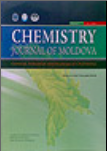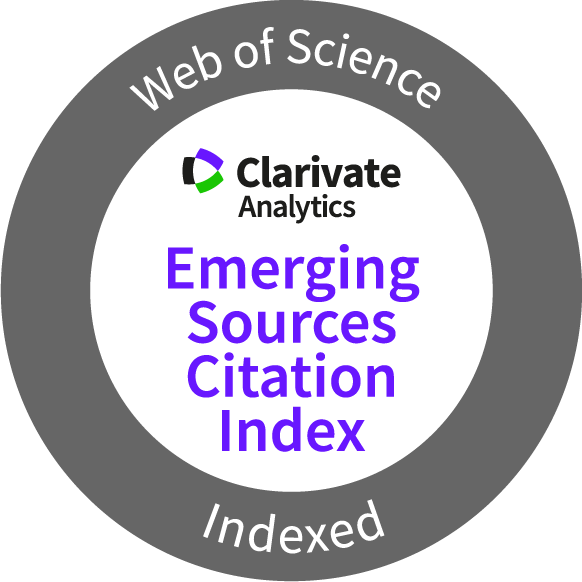Chemistry Journal of Moldova
2009 Volume 4, no.1
Author(s):
Field: Analytical chemistry
Type: Research paper
Issue: 2009 Volume 4, no.1
Pages: 66-71
Cristina Dinu, Gabriela Vasile, Liliana Cruceru, Jana Petre
Field: Analytical chemistry
Type: Research paper
Issue: 2009 Volume 4, no.1
Pages: 66-71
Full Text (PDF): Download
DOI: dx.doi.org/10.19261/cjm.2009.04(1).11
Graphical Abstract: The European Drinking Water Directive (98/83/EC), transposed in Romanian Legislation as Low 458/2002, amended by Low 311/2004, imposes the limit of concentration for metallic elements in water intended for human consumption. The toxic metals arsenic and selenium are among these elements and the limit value is 10 μg/L. In the paper there are presented the working conditions for determination of As and Se from drinking water using modern techniques based on the fl ow injection-hydride generation with the inductively coupled plasma atomic emission spectrometry (FIAS-ICP-EOS). The analyses were performed on Optima 5300 DV Perkin Elmer equipment with FIAS 400 Flow Injection System, Perkin Elmer type. For the hydride generation two types of solution were used: 10% (v/v) HCl as a carrier solution and 0.2 % NaBH4 in 0.05%NaOH solution as a reducing agent [1]. The treatment step of the samples and standard solutions consisted in reducing with mixed solutions of KI and ascorbic acid in acidic condition (HCl) for As and only with HCl and high temperature for Se [2,3]. The paper contains the characteristic parameters of the methods, such as: low detection limit, quantifi cation limit, repeatability, precision, recovery, which were evaluated using Certifi ed Reference Materials for each element.
Downloads: 20
Keywords: IR, UV-Vis, Atomic, NMR, Mössbauer spectroscopy, mass-spectrometry.
Full Text (PDF): Download
DOI: dx.doi.org/10.19261/cjm.2009.04(1).12
Graphical Abstract: The following classes of compounds are presented: terpenes, cyclic nitrogen compounds, dioximates, carboxylates etc., which have been studied with the participation of experts on physical methods of research - IR, UV-Vis, Atomic, Mössbauer spectroscopy, as well as Mass-spectrometry and Nuclear Magnetic Resonance in the IC ASM. Also, a number of significant scientific results obtained in collaboration of chemists and specialists in physical methods are described.
Downloads: 120
Full Text (PDF): Download
DOI: dx.doi.org/10.19261/cjm.2009.04(1).12
Graphical Abstract: The following classes of compounds are presented: terpenes, cyclic nitrogen compounds, dioximates, carboxylates etc., which have been studied with the participation of experts on physical methods of research - IR, UV-Vis, Atomic, Mössbauer spectroscopy, as well as Mass-spectrometry and Nuclear Magnetic Resonance in the IC ASM. Also, a number of significant scientific results obtained in collaboration of chemists and specialists in physical methods are described.
Downloads: 120
Author(s):
Field:
Type: Invited paper
Issue: 2009 Volume 4, no.1
Pages: 44-55
Tudor Lupascu, Maria Gonta, Viorica Gladchi
Field:
Type: Invited paper
Issue: 2009 Volume 4, no.1
Pages: 44-55
Full Text (PDF): Download
DOI: dx.doi.org/10.19261/cjm.2009.04(1).13
Graphical Abstract: This review details the most important achievements in the fi eld of ecological chemistry and environmental protection, obtained at the State University of Moldova and Institute of Chemistry of the Academy of Sciences of Moldova. The main research directions are described, as well as main scientific laboratories and centres of these two institutions.
Downloads: 22
Keywords: Quantum chemistry, Jahn-Teller effect, molecular systems.
Full Text (PDF): Download
DOI: dx.doi.org/10.19261/cjm.2009.04(1).14
Graphical Abstract: An overview of the main achievements of the Laboratory of Quantum Chemistry of the Institute of Chemistry of the Academy of Sciences of Moldova during the 50 year of its existence is briefly outlined. The main fundamental non-transient result obtained in this laboratory is the generalization of the Jahn-Teller effect theory formulated and proved as a general law of instability of polyatomic systems and its application to a variety of physical, chemical, and biological problems, including al-range spectroscopy, geometry and spectra of molecular systems, structural phase transitions, ferroelectricity, stereochemistry and crystal chemistry, chemical activation and reactivity, electron transfer in mixed-valence compounds, and electron-conformational transitions in biological systems.
Downloads: 27
Full Text (PDF): Download
DOI: dx.doi.org/10.19261/cjm.2009.04(1).14
Graphical Abstract: An overview of the main achievements of the Laboratory of Quantum Chemistry of the Institute of Chemistry of the Academy of Sciences of Moldova during the 50 year of its existence is briefly outlined. The main fundamental non-transient result obtained in this laboratory is the generalization of the Jahn-Teller effect theory formulated and proved as a general law of instability of polyatomic systems and its application to a variety of physical, chemical, and biological problems, including al-range spectroscopy, geometry and spectra of molecular systems, structural phase transitions, ferroelectricity, stereochemistry and crystal chemistry, chemical activation and reactivity, electron transfer in mixed-valence compounds, and electron-conformational transitions in biological systems.
Downloads: 27
Author(s):
Field:
Type: Invited paper
Issue: 2009 Volume 4, no.1
Pages: 30-35
Pavel F. Vlad, Fliur Z. Macaev
Field:
Type: Invited paper
Issue: 2009 Volume 4, no.1
Pages: 30-35
Full Text (PDF): Download
DOI: dx.doi.org/10.19261/cjm.2009.04(1).15
Graphical Abstract: This overview deals with the advances in the investigation in the fi eld of organic, bioorganic and naturalproducts chemistry as well as the biologically active compounds in the Institute of Chemistry of the Academy of Sciences of Moldova.
Downloads: 25
Author(s):
Field:
Type: Invited paper
Issue: 2009 Volume 4, no.1
Pages: 17-29
Ion Bulhac, Aurelian Gulea, Dumitru Batâr
Field:
Type: Invited paper
Issue: 2009 Volume 4, no.1
Pages: 17-29
Full Text (PDF): Download
DOI: dx.doi.org/10.19261/cjm.2009.04(1).16
Graphical Abstract: This article is dedicated to the history of apparition and development of Coordination chemistry in Moldova.The main scientific centres are characterized, as well as their main research directions. The most valuable results in fundamental and applicative research are described, obtained in the field of coordination chemistry in the republic.
Downloads: 32
Author(s):
Field:
Type: Invited paper
Issue: 2009 Volume 4, no.1
Pages: 8-16
Tudor Lupascu, Pavel F. Vlad, Aculina Aricu, Maria Cocu
Field:
Type: Invited paper
Issue: 2009 Volume 4, no.1
Pages: 8-16
Full Text (PDF): Download
DOI: dx.doi.org/10.19261/cjm.2009.04(1).17
Graphical Abstract: This communication deals with the appearance and development of the research in the field of chemistry in the Republic of Moldova; at the beginning - in chemistry sections of Moldovan Branch of the USSR Academy of Sciences and then - at the Institute of Chemistry, founded in 1959. The dynamics of changes in the structure and research subjects is traced. Data are presented concerning the research results in the field of the chemistry of coordination compounds, fine organic synthesis, natural products chemistry, physicochemical analysis, quantum chemistry, mineral resources, chemistry of natural water and purification of waste water, the preparation and utilization of active carbons, and ecological chemistry. A detailed account both of basic research and applied investigation is given. The collaboration of our scientists with their colleagues from abroad is considered. Information is presented related to the scientific schools at our institute, its guidance and laboratory′s leaders. The scientific equipment of the institute is mentioned. The relationship of the institute with higher schools, as well as training of young researchers will be presented.
Downloads: 29
Author(s):
Field:
Type: Invited paper
Issue: 2009 Volume 4, no.1
Pages: 7
The Organizing Committee
Field:
Type: Invited paper
Issue: 2009 Volume 4, no.1
Pages: 7
Full Text (PDF): Download
On behalf of the organizing committee We would like to welcome you, the participants of the International Conference dedicated to the 50thanniversary of the foundation of the Institute of Chemistry of the Academy of Sciences of Moldova. This conference is organized with the active assistance of the Supreme Council for Science and Technological Development of Academy of Sciences of Moldova, the Department of Natural and Life Sciences of the Academy of Sciences of Moldova and the Institute of Chemistry of the Academy of Sciences of Moldova. We wish you a pleasant and useful stay in the capital of our country, Chişinău.
Downloads: 24






